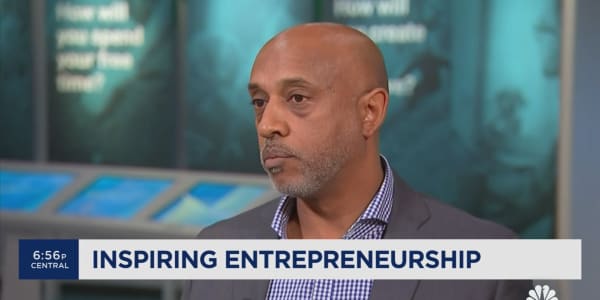The acting director of the Consumer Financial Protection Bureau is using a required appearance before Congress to advocate for a reduction in his own agency's power.
As part of his first semi-annual report to Congress, Mick Mulvaney is promoting new proposals that critics say would strip the agency of its independence by bringing it under congressional purview.
"It's important that we bring some transparency and accountability to this bureau," Mulvaney said in his opening remarks at the first hearing on Wednesday, held before the House Financial Services Committee, before taking questions from lawmakers.
"It is not designed structurally to be accountable … it's not accountable to anybody other than itself," said Mulvaney on Wednesday, who also serves as the budget director in the White House.
On Thursday, he will have another chance to push his ideas in a Senate Banking Committee hearing.
Specifically, as pitched in the bureau's written report released last week, the proposed changes would:
- Fund the bureau through congressional appropriations. Currently, the CFPB's budget is handled by the Federal Reserve with no legislative approval required.
- Require legislative approval of major rules. Critics say the bureau's current structure allows it to overstep its regulatory authority.
- Ensure the bureau's director reports to the president. As it stands, the structure of the CFPB calls for an independent director.
- Create an independent inspector general for the bureau.
The wish list comes on the heels of a variety of other moves the Trump-appointed director has made since taking over in November, including: delaying implementation of a rule affecting so-called payday lenders and backing off various lawsuits against companies accused of wronging consumers.
His latest recommendations, however, would require lawmakers' help. Changes would have to be made to the Dodd-Frank Act, sweeping legislation passed in 2010 intended to prevent another financial crisis like the one that rocked the U.S. economy in 2008 and 2009.

In that legislation, the CFPB was created as an independent consumer-protection agency. However, critics say its structure has allowed the bureau to be an overzealous regulator with no oversight.
Consumer advocates, however, point to the more than $12 billion returned to wronged consumers under Mulvaney's predecessor, Richard Cordray. Since Mulvaney took over, $92.6 million has been sent to consumers from its Civil Penalty Fund, although the distribution arose from a case handled before he came on board.
During Mulvaney's tenure, no new enforcement actions have been initiated.
More from Your Money, Your Future:
New York gives the green light to retirement plan for workers without one
5 cities for a fresh financial start
How well do you know your taxes? Take our quiz
"All of the actions we've seen [by Mulvaney] are consistent with a director who wants to take the bureau in a significantly different direction than it had been going," said Chris Willis, head of the consumer financial services litigation practice group for Ballard Spahr in Atlanta.
As far as the proposed congressional oversight for funding and approval of major new rules goes, supporters of the bureau say such changes would reduce the effectiveness of the CFPB.
"Due to political agendas and the influence of campaign contributions, it's doubtful Congress would approve major new protections or the funding needed for the Consumer Bureau to do its job," said Mike Litt, consumer campaign director with consumer advocacy group U.S. PIRG.






